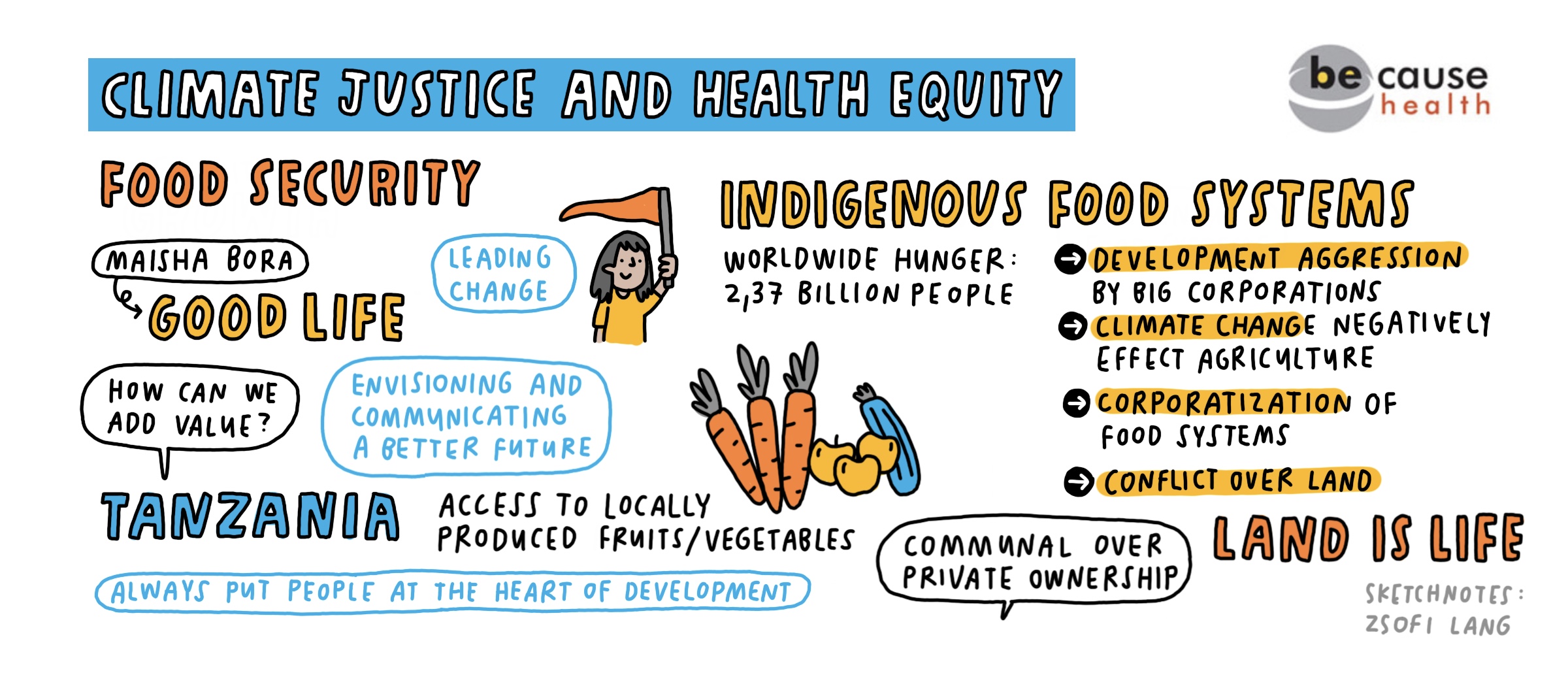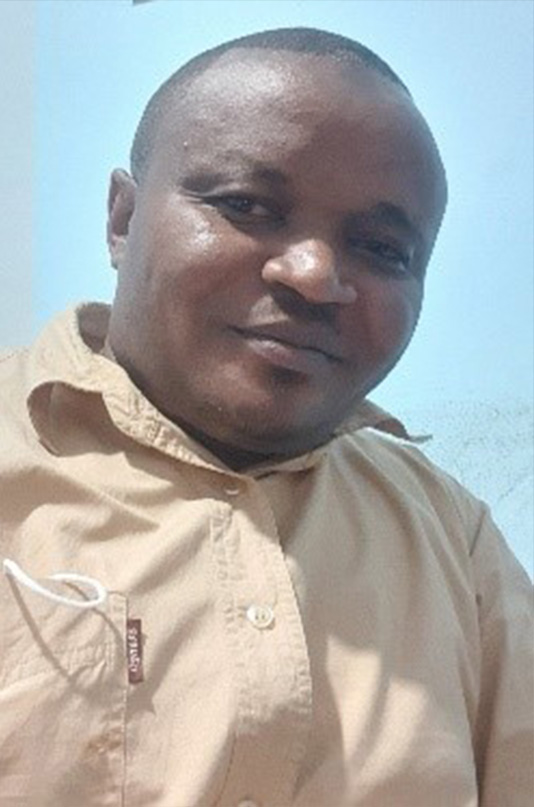
Moderator Jean Clovis Kalobu neatly guides us through the interesting cases, experiences and findings of the international panel on the consequences of the climate emergency on food security and health.
Juste Momboto from Memisa shares the research findings on the case study of the village of Bodanga in the Bokonzi district of DRC. The people of this riverside village are dependent on fishery for their food and livelihoods. Due to climate change (which causes droughts, sudden and severe rainfall and extreme flooding), the reproductive cycle of the fish was severely disturbed and harvest declined. This resulted in undernutrition, people turning towards credits to finance their livelihoods or fleeing the village in search for other work and income. The Memisa team worked with the local health systems to support the children under the age of 5 by distributing locally grown food. However, a long term solution was necessary. This could only come from an integrated approach and tackle the health, environment and political challenges all at the same time. They invested in income diversification from fishery and lobbied the local government for the protection of the environment. This case shows us that the impact of the climate emergency is happening now and is real. Local ecosystems are disrupted with major consequences for the most vulnerable populations that live there and only a global approach is possible.

"Climate change is a real pandemic we have to fight, since its consequences weigh on the health of the population."
Mathias Lardinois from Enabel shares his experience with an integrated programme on food and health with the Maasai population in Northern Uganda. The programme ‘Marisha Bora’ (which means “happy and healthy life” in Swahili) is a collaboration between different stakeholders and links different kinds of interventions and different sectors. VSF, TRIAS, IPD and WFP work respectively, but together, on livestock, diversification of income, water and food. Enabel coordinates everything, allowing them to reach their common goals. A survey at the end of the 5 year programme shows the results: consumption of home grown vegetables, meat and dairy increased. The undernutrition of children under the age of 5 decreased. And the glue that led to this success was the integrated approach. Mathias Lardinois urges us to invest in collaboration. Because this does not come “naturally”. We should take time to understand each other and put energy into building relationships based on trust.
Beverly Longid from IPMSDL gives feedback on an exercise that was made during a People’s Summit on sustainable food systems to tackle hunger and food insecurity. Indigenous people from all over the world gathered at this summit to, based on their knowledge and experience, find out what the main characteristics of sustainable food systems are, and how they can help tackle hunger and malnutrition. Indigenous people’s knowledge systems, traditional practices and cultural and communal values can help us to adapt to and mitigate climate change. The indigenous people’s fight for the protection of their ancestral lands is a fight against the intertwined global climate, food and health crisis. Communal ownership, collective action, sustainable agricultural practices (intercropping, traditional seedlings and organic fertilisers and pesticides)
Disclaimer: The presentation of Juste Momboto had a bad sound quality. We are sorry for this inconvenience.
